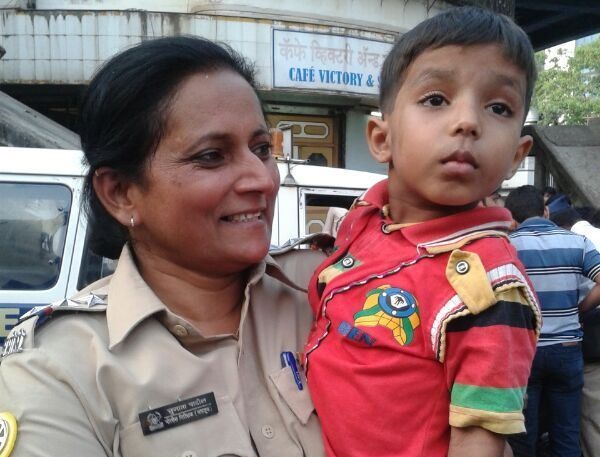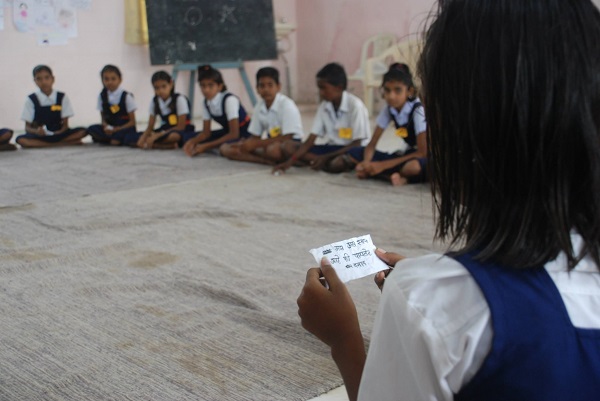A Goregaon resident and teacher describes her ordeal when a male colleague started harassing her after she turned him down.
by Bhakti Sankhe-Varde
I think I first realised that something called ‘sexual harassment’ exists when I was in school. We had a Sports teacher, a Mr Joseph, who I had heard often made girls uncomfortable. I had always found him to be an affable, nice man, and a very good singer with a great sense of humour.
We were in Class 8 when I first realised that beneath that genial exterior lurked a dirty old man. He must have been over 50 years old then. Slowly, we began to put his antics in perspective. He would insist on the girls not letting their braids fall over their shoulders and over their chests. “Pin up your hair!” he would order, and stare at the students’s breasts as they tightly rolled up their braids. Even the songs he would sing were often of a vulgar nature, and he would stare at some girl in the class as he sang. He would often place his hands on the girls’s shoulders when he spoke to them, tell the girls not to let down the hem of their sports shorts to make them longer.
The worst was when he once called a girl to the staff room after recess to discuss her participation in an upcoming sports meet. She said later that when she got there, he was seated alone with his pants undone. When he saw her approach, he casually smiled and redid his zipper. In tears, she later told the class teacher and her parents.
When he was sacked from work a month later, several students came forward with similar stories. We found it all a little shocking and confusing.
I am a teacher, too. I take tuitions at home and volunteer to teach underprivileged children in a local slum. Five years ago, I taught Math at a boys’ primary school in Mumbai, and I found that most of my colleagues were men. Which was quite okay – I have two brothers and a lot of male friends, so being around men was never a problem for me.
I loved the school and my colleagues were fun to be with. We would often hang out together and there were some movie and dinner plans made as well. However, I soon realised that one of my male colleagues had totally misunderstood my friendly banter for flirting. It seems he had gone around telling people that I had proposed to him. Infuriated, I confronted him, but he just denied it all. Another teacher said that that colleague was actually interested in me, and was probably spreading the rumours to boost his ego. To prove that I was totally disinterested, I once made it a point to get my fiancé to school. This man’s face fell when he saw my fiancé and I thought that he would back off.
The situation worsened
I suppose it was inevitable that he would find out that I was engaged to be married. At first, he was friendly, even congratulating me on my engagement and saying he must throw a party for me. Then a week later, somebody called my fiancé at his workplace and said that I was cheating on him – that I was having several affairs at school. Luckily, my fiancé and I were childhood friends so he trusted me. Imagine if he had gotten angry and broken off the engagement!
I also realised that something had changed at school. Some of the older boys had started giving me funny looks, whispering to each other as I walked the corridors to classes. Then one day, a male colleague took me aside and said that the school principal had taken down a disturbing photograph of me in one of the students’ toilets – it seems my head had been pasted onto a naked woman’s body.
Mortified, I wondered what to do. For the time being, I decided, I would do nothing, the prank would soon be forgotten.
Then one morning, I was horrified to find a pair of men’s underpants nside my locker. When I yelled in shock and disgust, the staff room only laughed. Everyone told me to ignore the mischief. There was nothing I could do, so fuming, I remained silent and decided to lock my cupboard from that moment.
Other disturbing things happened. Somebody spread a rumour that I was actually a eunuch. Once I came to the staff room for lunch and discovered that somebody had placed a packet of condoms in my handbag. The school’s vice principal once summoned me to her office and told me off for having an affair with a colleague. She refused to say which colleague and who had made the complaint. I began to realise that my name was being vilified – I was being branded as a ‘loose’ woman who had multiple partners, a woman who was more interested in flirting than teaching.
As my confidence dipped, I began to notice that I was being shadowed after I left for home. I would often walk home, but I always had the feeling that I was watched. One day, I suddenly turned around and saw, at a distance, that same colleague who had been telling people that I was interested in him. I was sure that all of these things happening to him could be traced back to him, but there was no way to prove it. The only thing that kept me going was my fiance’s steady support. I got married to him a few days later.
And then…
One morning, that colleague didn’t report to work. He wasn’t there the next day as well, but by noon, I was summoned to the principal’s office. When I got there, I was stunned to see the principal and a policeman. The policeman was very polite, he said that my colleague had tried to commit suicide and named me in his ‘complaint’. Shocked, I asked him how I could possibly be responsible when I didn’t even know him that well.
Luckily for me, the principal supported me and had already explained that I was a married woman and that I had never been seen in the company of that colleague. It turned out that in his suicide note, the man had written that I had led him on for a year, promising to marry him, but that I had recently married someone else. I didn’t know what to do.
My husband and his family stood by me in the situation. I had to do the rounds of the police station, give my statement and there was a time when I thought I would be jailed. But the police were sympathetic towards me and had understood that I was probably at the receiving end of a false case. Even more fortunately, the colleague had survived his suicide attempt and later confessed in hospital that the story had been cooked up. However, he never owned up to the things that had been done to me, to the rumours that had been circulating.
I finished that term and resigned my position. I had suffered enough and whatever I did, I knew people would still look at me in a certain way.
Today, I wish I had lodged an official complaint while the harassment was going on and insisted on an inquiry. My inaction probably spurred the harasser into doing more things to embarrass me. I wish I had not been so defensive from the start – as women, we are conditioned to feel shame when men humiliate us. I hope women who are harassed don’t take it silently. They must fight back and be alert at all times.
As told to Vrushali Lad.
(Picture courtesy www.indiafirstedition.com. Image is used for representational purpose only)
 “We are in the Sion Traffic Police committee,” explained Ajay Pandya (in green shirt in the pic), chief coordinator of the Sion Welfare Forum.”We regularly coordinate with the local police in times of need, and yesterday, we immediately rushed out to help when we learnt that the little boy, Rushab, was lost and crying for his mother. Sujata madam had found him on the footpath when she was on bandobast duty in the area.”
“We are in the Sion Traffic Police committee,” explained Ajay Pandya (in green shirt in the pic), chief coordinator of the Sion Welfare Forum.”We regularly coordinate with the local police in times of need, and yesterday, we immediately rushed out to help when we learnt that the little boy, Rushab, was lost and crying for his mother. Sujata madam had found him on the footpath when she was on bandobast duty in the area.”









